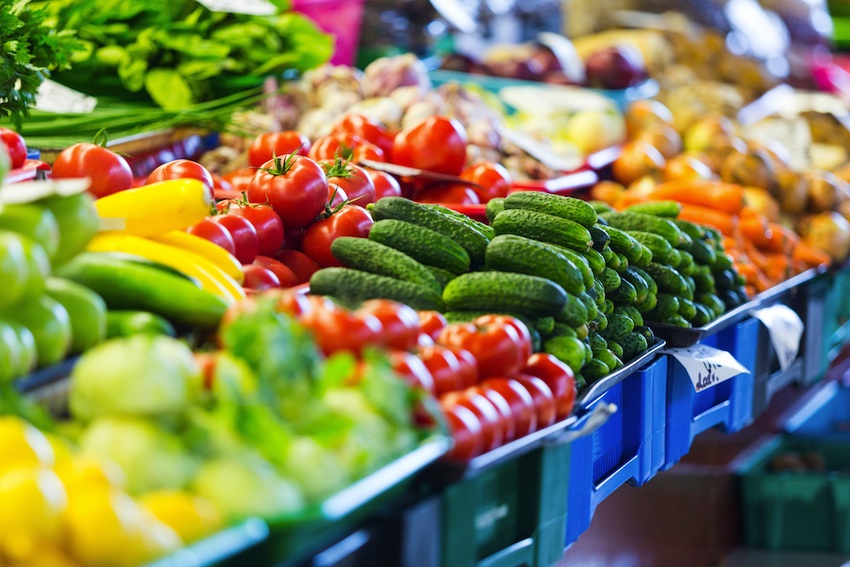How To Shop for Fresh Summer Produce

Grocery store produce image via Shutterstock.
The grocery store can get confusing during the summer months and you might find yourself wondering what types of produce are best (and easiest to cook with). What benefits do we get from each specific fruit or vegetable? Is it a good idea to shop for what’s in season? And how do we know if the produce is ripe or not when we pick it?
“Earlier generations were much more in tune with the Earth’s natural seasons than we are,” says Stacy Schwartz, a local certified health coach from the Institute of Integrative Nutrition. “What people ate was determined by what was growing locally, and today we’ve gotten used to having any kind of food we want, whenever we want it. But you have to remember that eating fruits and vegetables that are in season is beneficial to our health, and also to the planet.”
Schwartz recommends focusing on five different types of produce while shopping this summer— berries, tomatoes, peaches, summer squash, and cucumbers— because these types of fruits and vegetables aren’t naturally available during other months of the year, and they will help you add nutrients to your diet.
“Berries are in season and they’re really good for you,” she says. “They are low in calories, rich in antioxidants, may reduce the effects of Alzheimer’s disease, and may reduce the risk of colon or ovarian cancer. You can tell that berries are ripe when they smell exactly like you want them to taste, and they should be bright and free of blemishes.”
Tomatoes are nutritious, too, because they are a good source of lycopene, which has antioxidant and cancer-preventing properties. “They are also a good source of niacin, which has been used for years to raise levels of good cholesterol and lower levels of bad cholesterol,” Schwartz says. “I recommend choosing your tomatoes based on color and through a touch test. If the tomato yields slightly under your finger, it’s ripe.”
Peaches and nectarines are a good source of vitamin A and potassium, so adding them to your diet is a good choice. And summer squash, which has a soft and creamy quality, is an excellent source of vitamin C and contains omega-3 fatty acids, according to Schwartz. Cucumbers are especially nutritious. “They contain silica, which improves the complexion and health of the skin, and they are also a good source of fiber, potassium, and magnesium,” she says.
Why buy local, in season produce? Fresh fruits and vegetables are nutritious, plus you’ll be helping to reduce gas emissions, atmospheric pollution, and energy, which is required to transport out of season produce all over the world. “Fruits and veggies that aren’t in season have to be brought to you across long distances, if not from across the globe,” Schwartz says. “In fact, some statistics suggest that the out of season fruits and veggies at your local supermarket probably travel between 1,500 and 2,500 miles before they get to you. They are picked while they’re immature to ensure that they don’t spoil along the way, which affects their fresh taste and aroma, and this also causes them to lose nutrients.”
To pick out your own local produce, head to one of these pick your own farms right outside of Boston.


